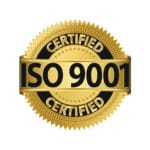The registration under section 12A of the Income Tax Act provides relief to charitable trusts and Not-for-profit organizations from paying tax to the government. Without a 12A certificate,the trust/NGO/societies income are liable to pay tax at normal rates.
A trust or NGO can apply for the 12A certificate immediately after its incorporation. The organization is required to file an application with the commissioner of income tax.
Eligibility for 12A certificate
An organization must fulfil the following conditions to obtain the 12A certificate,
- The organization must be covered under the definition of charitable trust as defined under the Income-tax act.
- The organization must be formed with the objective of not earning profits, i.e., there should not be any profit-earning motive.
- The charitable trust/religious trusts/societies should be genuinely engaged in providing benefit to the society. A private or family trust is not eligible to avail of the exemption benefits.
Benefits of 12A certificate:
Tax exemption: A charitable or religious trust registered under section 12A and having a 12A certificate is eligible to claim the tax exemptions. It shall remain free from paying any tax on its income.
Benefit of accumulating income: An organization canaccumulate 15% of the income without any restrictions.
Legal proof of existence: 12A certificate establishes a legal and valid proof of organization existence. It also helps the trusts to avail various government grants and schemes from domestic and international sources.
One-time registration: The 12A registration is simple and remains valid for a lifetime. Therefore, an organization doesn’t require to update or renew it periodically. It shall remain active until the date of cancellation.
Documents required for 12A registration
The trust requires the following documents for 12A registration:
- Form 10A
- Copy of PAN card of the organization
- Self-attested copy of the MOA/Trust deed of the trust and certificate of registration, i.e., any document evidencing the creation of the trust.
- Self-attested copy of the documents showing any modification of the objective, if any.
- Bank account statement of the organization for the last 3 financial years or since inception
- Annual financial statements including ITR for the last 3 financial years or since inception
- Self-certified copy of the rejection order,if any made earlier and the commissioner has rejected the registration application.
Process of registration under section 12A and obtain 12A certificate
Let’s understand the process of “How to obtain a 12A registration certificate.”
Application in Form 10A: 12A registration requires submission of application in Form 10A of the Income-tax commissioner. The organization shall file an application along with the relevant documents.
Review of the application: After submitting the application, the commissioner shall review the same. He can ask for additional documents or information.
Registration of the trust: On satisfaction, the commissioner shall pass an order in writing approving the registration of the trust or institution under section 12A of the Income-tax act. Whereas, in case of rejection, the commissioner shall inform the reason for rejection in writing.
Note: Every order by the commissioner either for accepting the registration or rejection must be passed within 6 months. The 6 months shall be count from the end of the month in which the application for registration is made. If the commissioner doesn’t pass any order within the specified period, it shall be considered as deemed approval of the registration.
Conclusion
Every trust or NGO must be aware of section 12A of the Income-tax act to avail of the various exemption benefits. However, the organization should have a 12A certificate to obtain benefits. Hence, the organization can simply follow the registration process as explained above to save itself from paying tax on its receipts.




